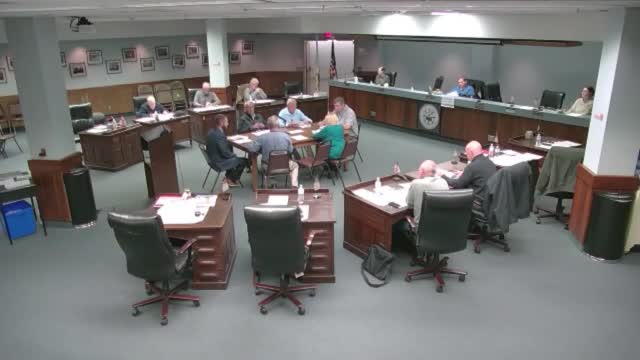Seneca County committee to study New York short-term rental law; industry manager offers help
Get AI-powered insights, summaries, and transcripts
Subscribe
Summary
The county’s Economic Development, Tourism & Housing Committee reviewed the new state short-term rental law and agreed to study whether to opt out by the June 25, 2026 deadline. Industry representative Brian Zurgis offered to provide analysis and free resources; the committee asked the treasurer to participate in future briefings.
Seneca County supervisors discussed New York State’s new short-term rental law and agreed to study whether the county should opt out; the legal opt-out deadline is likely June 25, 2026. The committee did not take a vote but asked staff to gather more analysis and to include the treasurer and code-enforcement staff in future briefings.
Art (county counsel) explained the effective window and the law’s registry and data-sharing requirements. The statute requires large online travel agents to share rental data with counties that opt in; if the county opts out, the law does not compel such data sharing. The law also allows counties to charge registration fees to cover administrative costs if they opt in.
Industry perspective: Brian Zurgis, owner of Finger Lakes Premier Properties, told the committee the law was developed for the New York City market and that rural counties should assess the true administrative and financial costs before deciding. Zurgis said similar counties were choosing to opt out while they evaluate implementation costs. “You can opt out of this law and at any time opt in,” Zurgis said, urging the committee to seek more information about compliance burdens, inspection requirements and potential benefits.
Committee next steps: members asked Zurgis to provide a structured list of specific regulatory burdens and potential benefits, and they directed staff to schedule a future committee meeting that includes the treasurer so the county can evaluate revenue and enforcement implications. Supervisor Hyson asked whether sales and occupancy taxes are being collected; speakers said occupancy and sales tax collection currently occurs at booking and that counts are expected to increase as enforcement improves.
Why it matters: municipalities use short-term rental registries and enforcement to capture occupancy taxes and address local complaints. The committee emphasized protecting local control, minimizing new administrative costs and ensuring accurate tax collection before deciding whether to opt in to the statewide registry requirements.
Next steps: committee staff will coordinate a follow-up meeting with the treasurer, code enforcement and invited industry experts. No county decision was made at this meeting.
